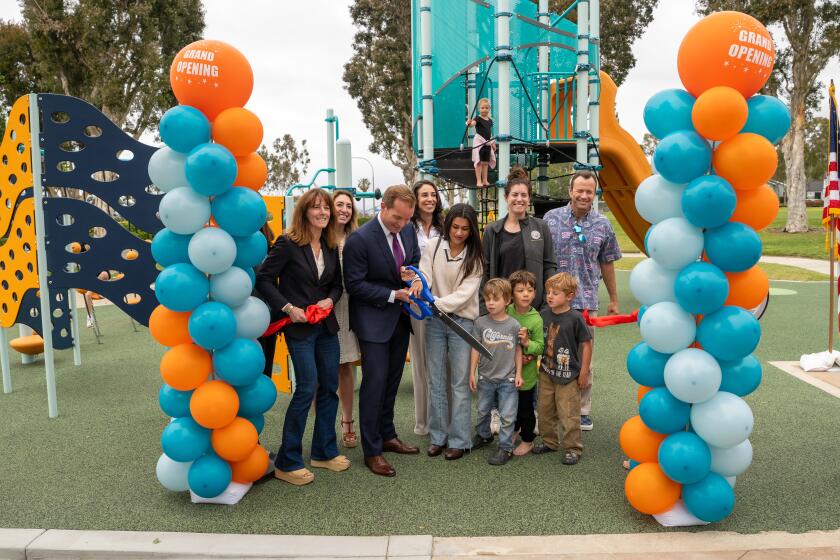12 sea gulls found dead or ill at Huntington State Beach; cause is under investigation
- Share via
The California Department of Fish and Wildlife is investigating why a dozen sea gulls were recently found dead or gravely ill at Huntington State Beach.
Employees and volunteers with the Wetlands & Wildlife Care Center in Huntington Beach found the 12 western gulls Thursday between lifeguard towers 3 and 9, according to a post on the nonprofit’s Facebook page.
Eight of the gulls were dead when they were found on the high tide line mixed with seaweed. The remaining four were “clinging to life” and were taken to the care center to be treated for possible poisoning, the post stated.
Based on where they were found, the care center suspects the birds washed ashore during Thursday morning’s high tide, according to the post.
Within hours, another of the gulls died, according to Lisa Peronne, the care center’s wildlife manager.
The birds’ cause of death was still unknown Monday, according to Fish and Wildlife spokeswoman Kirsten Macintyre.
The department sent two of the carcasses for necropsies at a diagnostic lab, and the results are expected by the end of the week, she added.
On Monday, Peronne described the three surviving birds as doing “really well” and said they had begun eating on their own.
“These were very healthy birds before this happened,” Peronne said, adding that the illness had come on suddenly. Once the gulls’ condition is stable, they will be returned to the beach after about two weeks, Peronne said.
Care center workers tried to capture two other gulls that were showing symptoms of early stages of toxicity, such as drooping wings and a “drunk waddle,” Peronne said. The birds also were suffering from varying levels of paralysis.
“We tried to capture them to treat them really quickly,” but the birds were still able to fly, she said.
Though the cause of the sickness hasn’t been identified, Peronne said the symptoms were similar to a bacterial illness that could be contracted by eating decomposing plants or animals.
Kevin Pearsall, an Orange County-area superintendent with California State Parks, which oversees Huntington State Beach, said he hadn’t been aware of the incident but doesn’t believe it indicates a public safety hazard.
“If it was water-related, everybody would know about [it],” he said.
All the latest on Orange County from Orange County.
Get our free TimesOC newsletter.
You may occasionally receive promotional content from the Daily Pilot.




